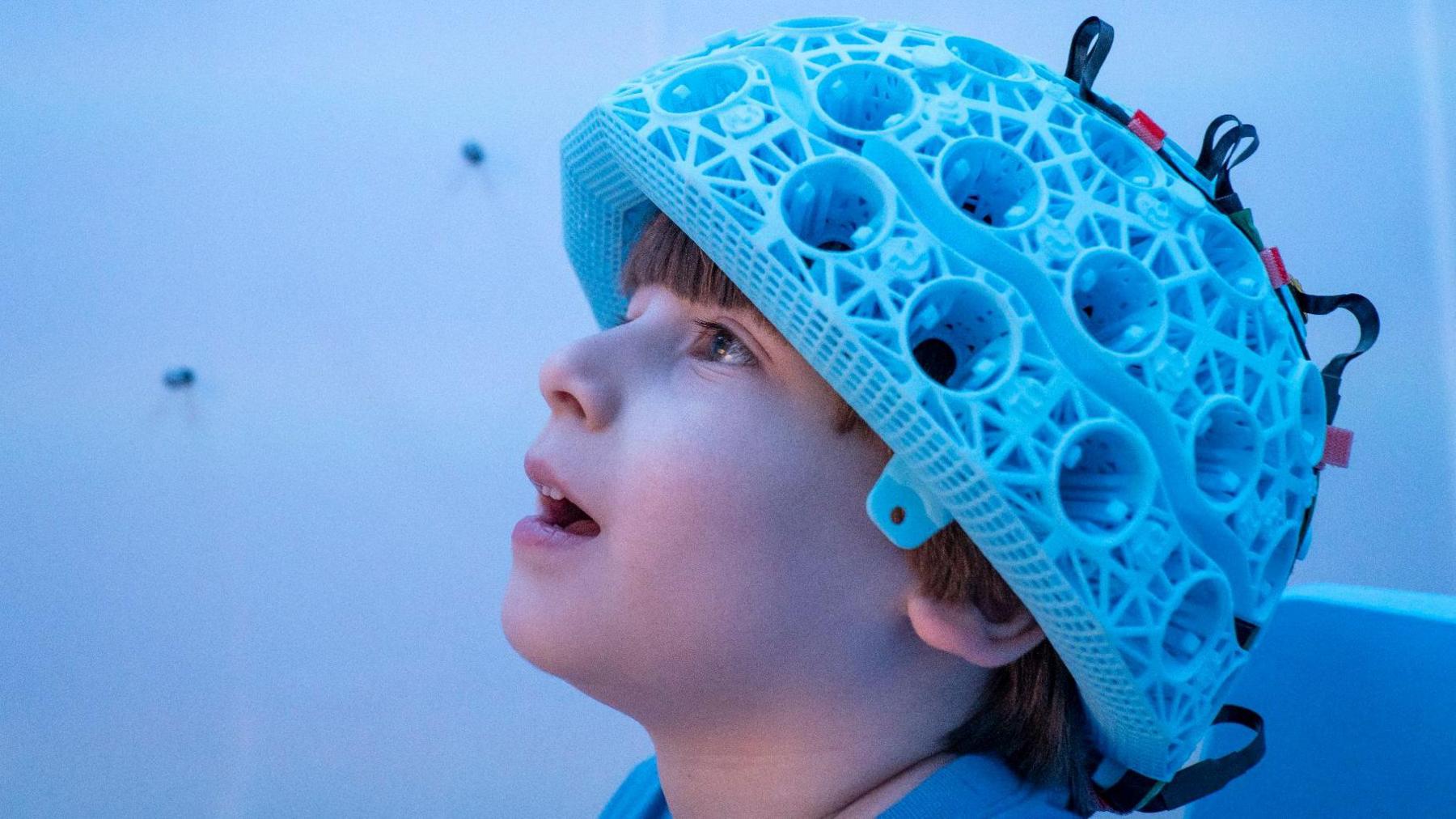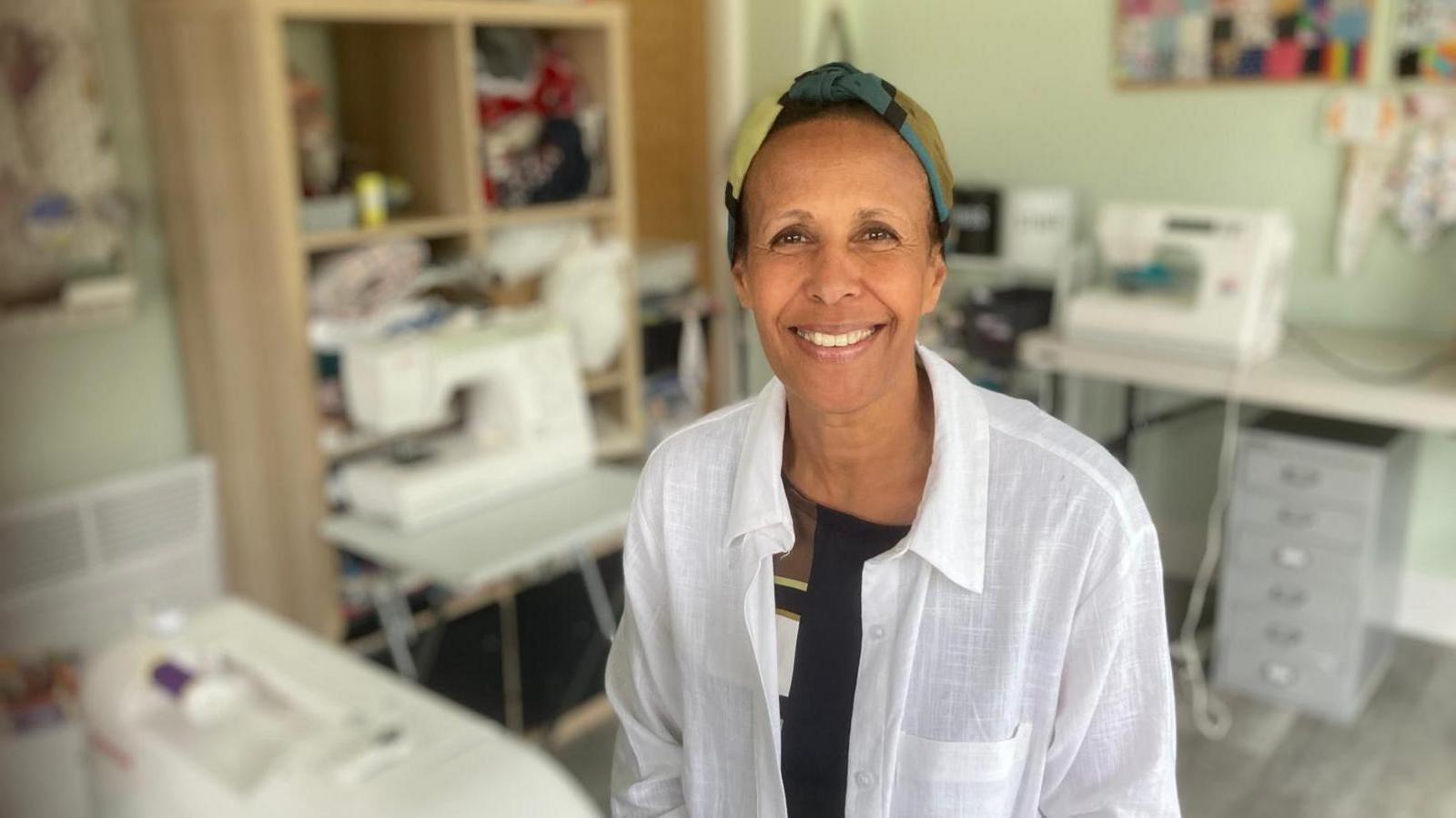Scanner 'gives clearest picture of young brains'

The scanner has been used on children as young as two years old
- Published
A new wearable scanner is giving scientists the clearest picture yet of children's brains, a study has found.
Researchers led by the University of Nottingham’s School of Physics and Astronomy have used a new type of magnetoencephalography (MEG) scanner to measure electrical brain activity in children as young as two.
The device opens up new possibilities for tracking how critical developmental milestones are reached, the university has said.
Academics said the scanner would help track how children learn to walk and talk and how their behaviour developed.
The research, published by eLife, external, studied 27 children aged between two and 13 as well as 26 adults aged between 21 to 34.
The study - funded by the Engineering and Physics Research Council - examined a component of brain waves, also known as neural oscillations, looking at how they affect communication between different parts of the brain.
Dr Lukas Rier, who led the research, said: "The wearable system has opened up new opportunities to study and understand children’s brains at much younger ages than was previously possible with MEG.
"There are important reasons for moving to younger participants: from a neuroscientific viewpoint, many critical milestones in development occur in the first few years, even months, of life."
Follow BBC Nottingham on Facebook, external, on X, external, or on Instagram, external. Send your story ideas to eastmidsnews@bbc.co.uk, external or via WhatsApp, external on 0808 100 2210.
Related topics
Related Internet Links
- Published29 May 2024
